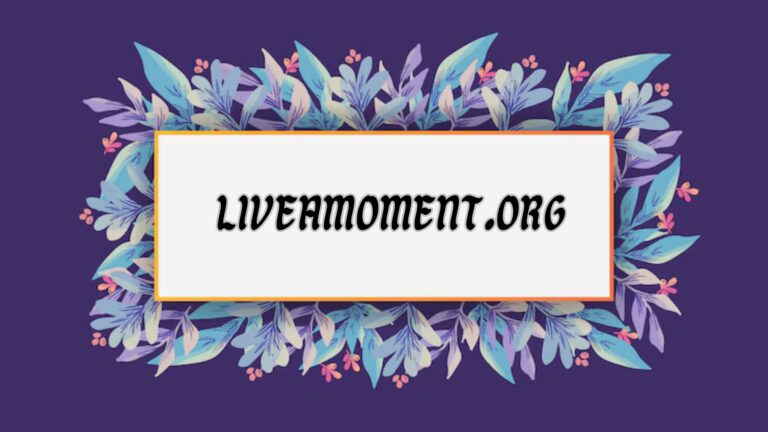From Professor to Plaintiff: Exploring C.W. Park’s Lawsuit against USC
In the world of academia, where knowledge is revered and universities are considered beacons of enlightenment, it is disheartening when allegations of misconduct tarnish their reputation. Recently, an esteemed professor from the University of Southern California (USC) has taken legal action against his own institution in a bold move that could have far-reaching implications for higher education as a whole. Today, we delve into the intriguing case of C.W Park’s Lawsuit against USC and examine how this battle between teacher and university might reshape the landscape of academia forever.
As accusations fly and defenses are raised, it becomes clear that there is more at stake than just one man’s grievances. With potential consequences reverberating throughout not only USC but also other institutions across the nation, this C.W. Park’s Lawsuit sheds light on deeper issues within higher education – issues that demand our attention and scrutiny. Join us as we unravel the context behind this case, explore its key players, predict its outcome with cautious eyes, and assess how it may impact both USC and the realm of higher learning itself.
Buckle up for an enthralling journey through scandalous allegations, institutional responses, legal battles fought in courtrooms rather than lecture halls – all while keeping a keen eye on what lies ahead for C.W. Park versus USC!
Context and Case History
To truly understand the gravity of C.W. Park’s Lawsuit against USC, we must delve into the context and case history that led to this dramatic legal battle. It all began with allegations of misconduct leveled against Park, a renowned professor in USC’s esteemed business school.
Accusations ranging from academic dishonesty to fostering a hostile work environment have cast a dark cloud over Park’s once-illustrious career. These allegations not only shook USC but also raised questions about the university’s handling of such matters and its commitment to maintaining ethical standards within its faculty.
In response, Park adamantly denied these claims, arguing that they were baseless and driven by personal vendettas rather than genuine concerns for academic integrity. As tensions mounted between him and his accusers, it became clear that this dispute could no longer be resolved behind closed doors – it was destined for the courtroom.
Fueled by frustration and a desire for justice, Park decided to take legal action against USC. This bold move marked an unprecedented step in higher education as a respected professor turned plaintiff against his own institution.
As news of the lawsuit spread like wildfire through academic circles, speculation grew about what this case would mean not only for C.W. Park or USC but also for universities nationwide grappling with similar issues surrounding faculty misconduct. The stage was set for an intense legal showdown between one man seeking vindication and an institution determined to protect its reputation at all costs.
USC’s Response to Previous Allegations
In the past, USC has faced its fair share of controversies and allegations. However, the recent C.W. Park’s Lawsuit filed by former professor C.W. Park has once again put the university under scrutiny. While it is important to note that these are just allegations at this point, USC’s response to previous accusations can shed some light on how they might approach this situation.
When faced with previous controversies, USC has taken a swift and proactive approach in addressing the issues head-on. They have implemented internal investigations and made efforts to improve transparency and accountability within their institution. This kind of response shows that USC takes such matters seriously and strives for continuous improvement.
USC has been known for collaborating with outside experts and organizations to conduct thorough investigations into any allegations brought against them. By involving independent parties in these inquiries, they aim to ensure fairness and impartiality throughout the process.
Furthermore, when misconduct or wrongdoing is identified within their faculty or staff members’ actions, USC has not hesitated to take disciplinary action as necessary. This demonstrates their commitment to maintaining high ethical standards within their community.
Additionally, USC has also invested heavily in programs aimed at preventing future incidents from occurring. These initiatives include training sessions on ethics and appropriate behavior for faculty members.
While it remains uncertain how exactly USC will respond specifically to C.W. Park’s Lawsui their track record suggests that they will prioritize transparency and accountability while working towards resolving any issues raised during this legal battle.
Parties Involved
When it comes to legal disputes, understanding the parties involved is crucial. In the case of C.W. Park’s lawsuit against USC, there are two main players: C.W. Park himself and the University of Southern California C.W. Park, a former professor at USC’s Marshall School of Business, filed a lawsuit alleging racial discrimination and retaliation by the university. As an esteemed academic with years of experience in his field, Park claims that he faced unfair treatment during his time at USC, ultimately leading to his termination.
On the other side is USC, one of California’s most prestigious universities. With a reputation for excellence in education and research, USC has been thrust into the spotlight due to these allegations brought forth by Park. The university now finds itself defending its actions and reputation in court.
The involvement of these two parties sets the stage for what promises to be a complex legal battle. Each side will present their arguments and evidence before a judge or jury who will ultimately decide on the outcome of this case.
As spectators eagerly await news about this high-profile lawsuit between C.W. Park and USC unfolds, both sides must prepare themselves for intense scrutiny from not only those directly involved but also from outside observers who have vested interests in how justice is served.
With so much at stake for both parties involved in this lawsuit – professional reputations on one hand and potentially significant damages on another – it remains unclear which way the scales of justice will tip when all is said and done.
Predicted Outcome
As the lawsuit filed by C.W. Park against USC continues to unfold, many are speculating about the potential outcome of this high-profile case. While it is impossible to predict with certainty how the courts will rule, there are several factors that may influence the eventual decision.
First and foremost, it is essential to consider the evidence presented by both parties. Park has alleged various instances of discrimination and misconduct during his tenure at USC, presenting documentation and witness testimonies to support his claims. On the other hand, USC has consistently denied any wrongdoing and has stated its intention to vigorously defend itself in court.
Another crucial factor that may impact the outcome is public opinion. As news of this C.W. Park’s Lawsuit spreads, individuals within academia and beyond are closely following developments. The court’s decision could have far-reaching implications for universities across the country as they grapple with issues of diversity, inclusion, and accountability.
Furthermore, legal precedents play a significant role in shaping outcomes in cases like these. Past rulings on similar matters can provide guidance for judges when considering arguments made by both parties. However, every case is unique, making it challenging to draw direct comparisons between Park’s lawsuit against USC and previous lawsuits involving allegations of discrimination or retaliation.
Additionally, external pressures such as media coverage and public scrutiny can influence how a case unfolds. The attention generated by this lawsuit may prompt additional individuals with relevant information or experiences to come forward – potentially further strengthening one side’s argument over another.
Impact on USC and Higher Education
The impact of C.W. Park’s lawsuit against USC extends beyond the confines of a single institution. This legal battle has the potential to send shockwaves throughout higher education, affecting not only USC but also how universities handle allegations of misconduct and discrimination.
This case puts USC in the spotlight and raises questions about its ability to address issues of discrimination within its own ranks. If Park’s claims are proven true, it could tarnish the reputation of one of America’s most prestigious universities. And erode trust among students, faculty, and donors.
Furthermore, other institutions will be closely watching how USC handles this situation. The outcome may set a precedent for how universities respond to similar accusations in the future. It could lead to more transparency in investigating claims of discrimination or harassment within academia.
Additionally, this lawsuit serves as a wake-up call for higher education as a whole. It highlights the need for stronger policies and procedures. That protect individuals from discrimination or retaliation when speaking out against injustice. Universities may be prompted to review their own practices and make necessary changes to ensure fairness on campus.
This case underscores society’s growing demand for accountability in all areas, including academia. As more people become aware of instances where power imbalances lead to mistreatment or bias, there is increasing pressure on institutions. Like USC to take meaningful action against those responsible.
USC’s Measures Post-Allegations
In the aftermath of the allegations made by former professor C.W. Park against USC, the university has taken several measures to address the situation and ensure accountability within its ranks.
USC has initiated an independent investigation into the allegations raised by Park. This move demonstrates a commitment to transparency and a willingness to uncover any misconduct that may have occurred. By conducting an unbiased investigation, USC aims to get to the truth of the matter and take appropriate action based on its findings.
Additionally, USC has implemented new policies and protocols aimed at preventing similar incidents from happening in the future. These measures include enhanced training programs for faculty and staff on issues related to harassment, discrimination, and bias. By educating their employees about these topics, C.W. Park’s Lawsuit is taking proactive steps towards fostering a more inclusive and respectful campus environment.
Furthermore, USC has established channels through which individuals.an report any concerns or grievances they may have regarding inappropriate behavior or misconduct. This allows for effective communication between students, faculty members, and administrators while ensuring that complaints are addressed promptly and thoroughly.
To further foster a safe environment on campus. USC is actively working towards creating support systems for survivors of harassment or assault. This includes providing access to counseling services as well as resources dedicated to supporting victims throughout their healing process.
These measures reflect USC’s dedication to addressing allegations head-on and making necessary changes within their institution. While it remains uncertain what impact this lawsuit will ultimately have on higher education as a whole or specifically. On USC’s reputation moving forward; it is clear that they are taking significant steps towards resolving these issues internally . Demonstrating their commitment towards building a safer learning community for all stakeholders involved.
Conclusion
The lawsuit filed by C.W. Park against USC has certainly garnered attention and raised important questions about the treatment of faculty members in higher education institutions. While the outcome of this case is yet to be determined. It has already made an impact on both USC and the broader landscape of academia.
Regardless of how the legal proceedings unfold, it is clear that allegations like those brought forth by Park have prompted. USC to take a closer look at its policies and practices. The university’s commitment to addressing these concerns can be seen through their establishment of task forces. Implementation of new reporting mechanisms. And efforts to promote transparency.
This lawsuit also serves as a reminder that universities must prioritize creating inclusive environments. Where individuals feel safe and supported regardless of their background or status within the institution. Faculty members play a crucial role in shaping students’ experiences. And academic success; therefore, their well-being should be a top priority for any educational institution.
As we await further developments in this case, it is worth reflecting on what this means for higher education as a whole. The C.W. Park’s Lawsuit could potentially set precedents that will shape future interactions between professors and universities across the country.
C.W. Park’s Lawsuit like C.W. Park’s serve as catalysts for change within educational institutions – prompting them to reevaluate their practices, policies, and culture. It is our hope that these changes lead to more equitable environments where all faculty members are treated with respect and given opportunities for growth.
The lawsuit filed by C.W. Park’s Lawsuit against USC highlights ongoing challenges faced by faculty members in academia while also shedding light on potential areas for improvement within higher education institutions as they strive towards greater inclusivity for all stakeholders involved.







